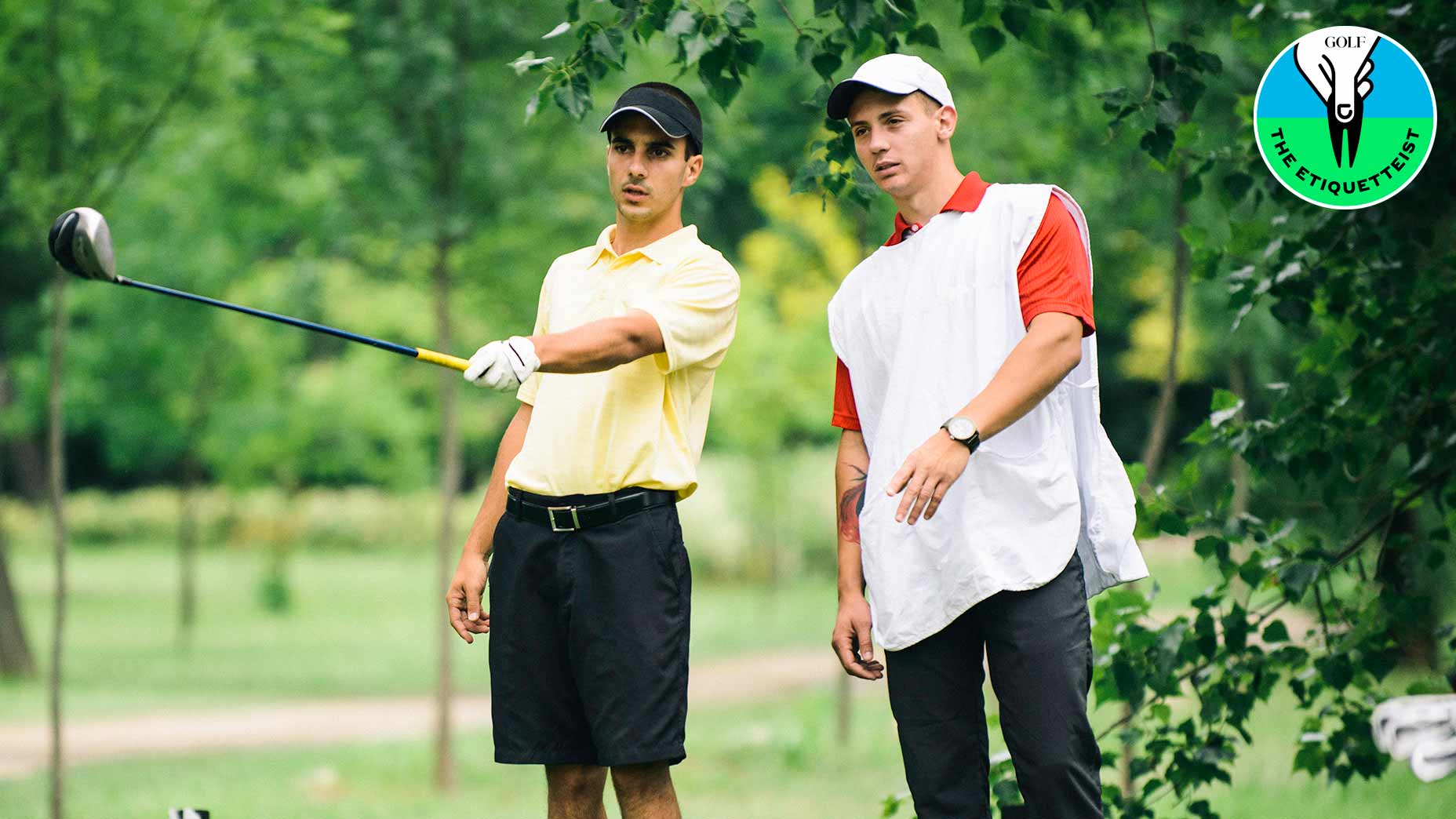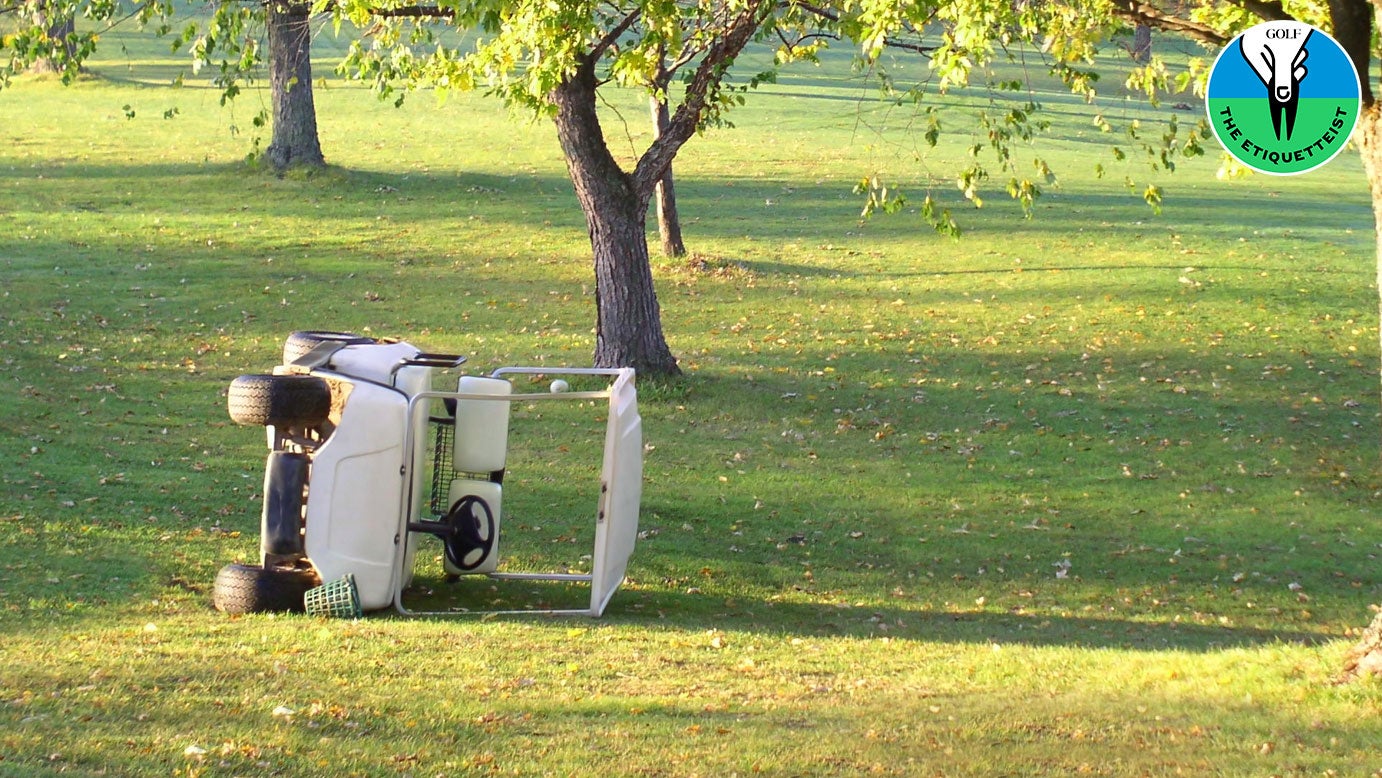The Etiquetteist: Do I need to tip a caddie who wasn’t on my bag?

What, if anything, do you owe a caddie who didn't carry your bag but helped here or there along the way? An expert in golf etiquette answers.
Getty Images
If my buddy takes a caddie and I don’t, should I feel obligated to tip the looper at the end of the round anyway? — Darren, El Cerrito, Calif.
Dear Darren,
A day at the course can be like a hotel stay, replete with services you might not have requested and costs you’d rather not incur. Pull up, say, to a Four Seasons, and the valet and bellhop are there to greet you, ready to park your car and grab your bags in exchange for a little sweetener from your wallet.
Off-putting? Possibly, assuming these are tasks you’d rather handle yourself. But that doesn’t mean you deserve a pity party. Buyer beware, baby. When you book a hotel — particularly a luxe one — you know what you’re getting into. You’ve implicitly agreed to some extra expenses: gratuities that can seem, well, gratuitous. If you find that unacceptable, the Etiquetteist suggests you make a reservation at a Motel 6. They’ll leave the light on for you, and no one will insist on helping with your luggage.
Something similar applies in golf. When you sign up for a round at a course with a caddie program, you know there’s a chance there’ll be a looper in your group. You are, in essence, buying into an economic system that’s fueled, in part, by tipping.
How much do you owe? That depends. Caddies assigned to a single player often wind up helping the entire group, providing reads and distances, joining search parties for lost balls and supplying everything from extra tees and sunscreen to snake-bite serum. Assuming you’ve benefited from some of that assistance, etiquette suggests you tip after the round. A nominal amount should do the trick: 20 percent or so of the caddie’s base fee (but if the caddie saved your life with anti-venom, you might consider giving more).
And what if you never wanted that assistance to begin with? To prevent any potential awkwardness, it’s on you to make your wishes clear at the outset. No need to be rude or blunt about it. Polite communication will suffice. Simple phrases, like “Thanks, but I’ve got this,” if the caddie steps in to offer you a read, will get your point across. Most loopers will take the hint. They’ll leave you to your business, and they won’t expect a tip. Whether they’ll be quietly resentful of you is another matter. But that’s not something you can control.
Other factors to consider are the type of course you’re playing and your relationship with the other golfers in your group. If you’ve been paired with strangers at a resort course, for instance, there is much less obligation to tip a caddie on someone else’s bag. And no obligation at all if that caddie has done nothing to assist you.
At a private course, the dynamics can be different, with all kinds of inferred expectations. If you’re playing as a guest, it’s a good idea to offer to cover your host’s caddie fees anyway, tip included. (Your host may firmly decline that offer, but you should still make it.) If you’re the host, you surely understand your club’s culture well enough to know which protocols you ought to follow.
In any industry, there is always some gray area when gratuities are involved. Did you tip too much? Did you tip too little? Should you feel guilty for not tipping a cent?
The good news is, you can always steer clear of knotty caddie questions. Don’t want to deal with any second-guessing around gratuities? Stick to golf’s version of a motel and play the muni down the road.











